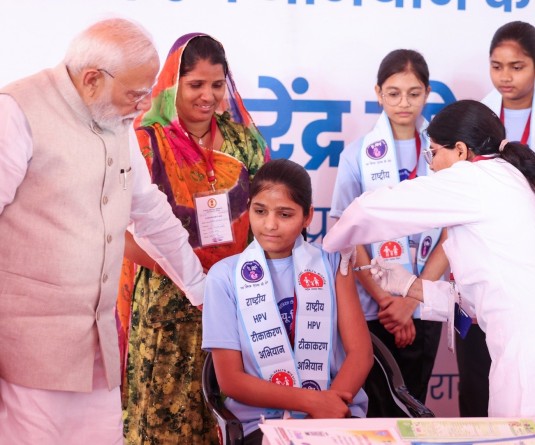
Out of the box, smartphones come with a lot of nifty features. But, being the tiny computers that they are, they also come with tremendous untapped potential. To get the most out of your smartphone - whether it’s a BlackBerry, iPhone, Android, or some other model - you have to add a little know-how and a few tools. The payoff, though, is greater productivity and more fun.
Find apps for internet services: No matter how good the internet browser is on your smartphone, surfing the net on a tiny screen is tough to do. That’s why it makes sense to search out smartphone apps to access your most commonly used internet sites. Google, for instance, makes smartphone apps for its Gmail, Maps, and Search features. Skype makes a smartphone app. For iPhone and Android, there’s Craigsphone for Craigslist, as well. Also, if you’re a lover of web forums, check out Tapatalk, which puts a phone-friendly face on many of the most popular web forums. And if instant messaging is a staple on your desktop PC, there’s no reason to leave it behind on your smartphone. Look at Beejive, which can aggregate your instant messaging accounts - including those on Windows Live Messenger, Yahoo! AIM, and Google Talk - and permit you to carry on multiple instant messaging chats at once.
Guarding against theft: If your smartphone were lost or stolen, what personal information would be at some stranger’s fingertips? If you’re like many smartphone users, you probably carry your device around with no password protection whatsoever. If so, you’re courting disaster. Personal e-mail, bank account information, web search history, contacts, and more are typically stored on a smartphone.
Protect that information at multiple levels. First, take the time to learn how to password protect your smartphone itself. Most can be set up to require some type of password to log on to the device or to enter it after it is in a low-power state. Any applications that contain personal information of any type - including e-mail programs - should be protected by a password as well. Don’t leave home without one.
Emergency battery: It’s almost guaranteed that your smartphone will start running out of battery power just when you need it the most. You can do a lot to extend the life of your smartphone’s battery, though, by deactivating features that you don’t need or use on a regular basis. Use your phone’s setup feature to disable Wi-Fi or Bluetooth, for example, if you don’t need them. Both services engage power-consuming internal electronics. Also, get in the habit of putting your phone into a low-power standby mode when you’re not using it rather than just locking the keyboard. By using the low-power mode, you can almost double the amount of time you get from one battery charge.
Unlocking: Smartphones from many carriers come in a ‘locked’ state, preventing the phone from being used with another carrier by means of simply INSERT IGNOREing a SIM card. That’s a real hindrance when you’re traveling abroad and would like to use your phone just by buying a SIM card once you arrive.
You can skirt this inconvenience by figuring out how to ‘unlock’ your smartphone. Some carriers will tell you how to do this if you call specifically to ask. Often, too, you can find instructions for unlocking smartphones by searching for an unlocking code or procedure online. Once unlocked, your smartphone should be ready to accept a SIM card from an overseas carrier, paving the way for less expensive phone and data services while you’re out of the country.
Personal ringtones: Most smartphones allow you to assign ringtones - or sounds - to specific callers. Try it. Doing so allows you to know who’s calling without looking at your phone, which is a huge time-saver when you’re on the go. Get smart, too, about learning how to switch the way you’re notified about incoming text messages, calls, or e-mail messages.
Search on the move: Some of the major search engines have developed versions of their sites designed specifically for smartphone users. Google’s mobile search engine (http://www.google.com/m), for example, is even simpler and faster than its stock version. And Bing’s mobile search engine (http://m.bing.com) resembles Google in its austerity and speed.
Find apps for internet services: No matter how good the internet browser is on your smartphone, surfing the net on a tiny screen is tough to do. That’s why it makes sense to search out smartphone apps to access your most commonly used internet sites. Google, for instance, makes smartphone apps for its Gmail, Maps, and Search features. Skype makes a smartphone app. For iPhone and Android, there’s Craigsphone for Craigslist, as well. Also, if you’re a lover of web forums, check out Tapatalk, which puts a phone-friendly face on many of the most popular web forums. And if instant messaging is a staple on your desktop PC, there’s no reason to leave it behind on your smartphone. Look at Beejive, which can aggregate your instant messaging accounts - including those on Windows Live Messenger, Yahoo! AIM, and Google Talk - and permit you to carry on multiple instant messaging chats at once.
Guarding against theft: If your smartphone were lost or stolen, what personal information would be at some stranger’s fingertips? If you’re like many smartphone users, you probably carry your device around with no password protection whatsoever. If so, you’re courting disaster. Personal e-mail, bank account information, web search history, contacts, and more are typically stored on a smartphone.
Protect that information at multiple levels. First, take the time to learn how to password protect your smartphone itself. Most can be set up to require some type of password to log on to the device or to enter it after it is in a low-power state. Any applications that contain personal information of any type - including e-mail programs - should be protected by a password as well. Don’t leave home without one.
Emergency battery: It’s almost guaranteed that your smartphone will start running out of battery power just when you need it the most. You can do a lot to extend the life of your smartphone’s battery, though, by deactivating features that you don’t need or use on a regular basis. Use your phone’s setup feature to disable Wi-Fi or Bluetooth, for example, if you don’t need them. Both services engage power-consuming internal electronics. Also, get in the habit of putting your phone into a low-power standby mode when you’re not using it rather than just locking the keyboard. By using the low-power mode, you can almost double the amount of time you get from one battery charge.
Unlocking: Smartphones from many carriers come in a ‘locked’ state, preventing the phone from being used with another carrier by means of simply INSERT IGNOREing a SIM card. That’s a real hindrance when you’re traveling abroad and would like to use your phone just by buying a SIM card once you arrive.
You can skirt this inconvenience by figuring out how to ‘unlock’ your smartphone. Some carriers will tell you how to do this if you call specifically to ask. Often, too, you can find instructions for unlocking smartphones by searching for an unlocking code or procedure online. Once unlocked, your smartphone should be ready to accept a SIM card from an overseas carrier, paving the way for less expensive phone and data services while you’re out of the country.
Personal ringtones: Most smartphones allow you to assign ringtones - or sounds - to specific callers. Try it. Doing so allows you to know who’s calling without looking at your phone, which is a huge time-saver when you’re on the go. Get smart, too, about learning how to switch the way you’re notified about incoming text messages, calls, or e-mail messages.
Search on the move: Some of the major search engines have developed versions of their sites designed specifically for smartphone users. Google’s mobile search engine (http://www.google.com/m), for example, is even simpler and faster than its stock version. And Bing’s mobile search engine (http://m.bing.com) resembles Google in its austerity and speed.






